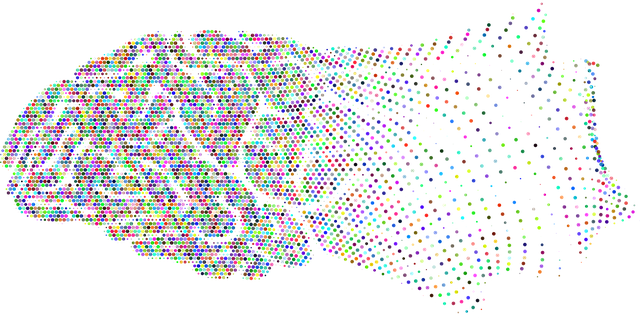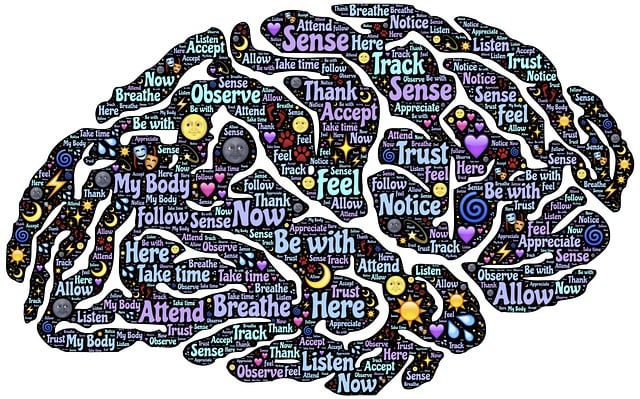Mental health advocacy initiatives, like Boulder Sexual Addiction Therapy (BSAT), are transforming care through specialized services, education, and inclusive practices. BSAT's Community Outreach Program educates schools and communities about sexual addiction, fostering open dialogue and reducing stigma. Effective mental health advocacy involves awareness campaigns, emotional intelligence training, digital platforms, and partnerships. Overcoming stigma encourages individuals to seek support, with professionals promoting understanding and self-care. The future of mental health advocacy emphasizes diverse community reach through innovative technologies like podcasts, ensuring culturally responsive care.
Mental health advocacy initiatives are transforming lives and communities, with efforts like Boulder Sexual Addiction Therapy leading the way. This article delves into the vital role of advocacy in promoting mental well-being, exploring its impact on community awareness and challenging stigma. We examine successful strategies, key roles, and future directions to expand reach, ensuring everyone has access to essential support. Understanding Mental Health Advocacy is a necessary movement, and we’re here to illuminate its profound effects.
- Understanding Mental Health Advocacy: A Necessary Movement
- The Impact of Boulder Sexual Addiction Therapy on Community Awareness
- Strategies for Effective Mental Health Advocacy Initiatives
- Overcoming Stigma: Key Roles in Mental Health Advocacy
- Future Directions: Expanding Mental Health Advocacy Reach
Understanding Mental Health Advocacy: A Necessary Movement

Mental health advocacy initiatives are a necessary movement in promoting awareness and support for individuals grappling with various mental health challenges. At the core of this advocacy lies the belief that everyone deserves access to quality care, understanding, and resources to enhance their well-being. Boulder Sexual Addiction Therapy, for instance, exemplifies such efforts by providing specialized services tailored to address specific needs. This includes comprehensive therapy options, education programs, and workshops designed to help individuals navigate stress management effectively.
Beyond individual practices like Boulder Sexual Addiction Therapy, organizations are increasingly focusing on Mental Health Education Programs Design and incorporating Cultural Sensitivity in Mental Healthcare Practice. These initiatives aim to destigmatize mental health issues, foster inclusive environments, and ensure that support services cater to diverse populations. By combining advocacy with practical solutions, such as Stress Management Workshops Organization, the mental healthcare landscape is being transformed to better serve those who need it most.
The Impact of Boulder Sexual Addiction Therapy on Community Awareness

Boulder Sexual Addiction Therapy has made significant strides in raising community awareness about sexual addiction and its impact on individuals and relationships. Through their comprehensive approach, they offer more than just therapy; they initiate conversations that break down stigma and promote understanding. The organization’s Community Outreach Program Implementation aims to educate various groups, including schools, churches, and support groups, emphasizing the importance of early intervention and resilience building.
This initiative encourages positive thinking by presenting sexual addiction as a treatable condition rather than a personal failure. By fostering open dialogue, Boulder Sexual Addiction Therapy helps victims find the courage to seek help and rebuild their lives. Their efforts have positively influenced local communities, encouraging members to support those struggling with sexual addiction and promoting overall mental health wellness.
Strategies for Effective Mental Health Advocacy Initiatives

Mental health advocacy initiatives require a multi-faceted approach to create meaningful change and improve access to support services. One key strategy is to raise mental health awareness through educational campaigns, community events, and partnerships with local organizations. Engaging in open dialogues about mental health breaks down stigma, fosters empathy, and encourages individuals to seek help when needed. Incorporating emotional intelligence training into these initiatives empowers people to recognize and manage their emotions effectively, promoting resilience and early intervention.
Additionally, leveraging digital platforms can amplify advocacy efforts. Online resources, social media campaigns, and virtual support groups bridge geographical barriers, making Trauma Support Services more accessible to those who might otherwise face challenges in accessing care. For instance, Boulder Sexual Addiction Therapy has successfully utilized digital tools to reach individuals facing sexual addiction, offering specialized therapy and community support networks that cater to their unique needs. By combining traditional awareness campaigns with innovative digital solutions, advocacy initiatives can create a more inclusive and supportive environment for everyone’s mental well-being.
Overcoming Stigma: Key Roles in Mental Health Advocacy

Overcoming stigma is a pivotal aspect of mental health advocacy, breaking down barriers that prevent individuals from seeking support. In this context, various key roles contribute to fostering an environment where conversations about mental health are normalized and treatment is accessible. Mental health advocates play a crucial role by raising awareness through public speaking engagements, social media campaigns, and community events. They help educate people about different aspects of mental wellness, dispel myths, and promote understanding, thereby reducing the stigma associated with seeking therapy, such as Boulder Sexual Addiction Therapy.
Additionally, self-care practices and mental wellness journaling exercises guided by professionals can empower individuals to take charge of their mental health proactively. Healthcare providers also have a significant role; they can enhance cultural competency training to better understand the unique needs of diverse populations, ensuring inclusive care. This multifaceted approach—advocacy, education, and accessible healthcare—is essential in creating a supportive ecosystem where people feel comfortable discussing and addressing their mental health concerns openly.
Future Directions: Expanding Mental Health Advocacy Reach

The future of mental health advocacy lies in expanding access and reaching diverse communities. Initiatives like Boulder Sexual Addiction Therapy demonstrate the importance of specialized treatment, but we must also focus on broadening our approach to include various cultural sensitivities within mental healthcare practices. By incorporating self-awareness exercises tailored to different backgrounds, we can create inclusive environments that resonate with individuals from all walks of life.
Furthermore, leveraging modern technologies like mental wellness podcast series production offers an exciting opportunity to reach a wider audience. These podcasts can provide valuable insights, share recovery stories, and offer practical tips, making mental health support more accessible and engaging for those who may not traditionally seek help. This multi-faceted approach ensures that advocacy efforts are inclusive, culturally responsive, and adaptable to the evolving needs of individuals seeking support.
Mental health advocacy initiatives, such as those exemplified by Boulder Sexual Addiction Therapy, play a pivotal role in fostering community awareness and breaking down barriers. By employing strategies that overcome stigma and engage diverse stakeholders, these efforts can significantly impact public understanding and access to mental health support. Looking ahead, expanding the reach of mental health advocacy is crucial to ensuring that everyone has equal opportunities for well-being, mirroring the transformative changes Boulder Sexual Addiction Therapy has inspired.














